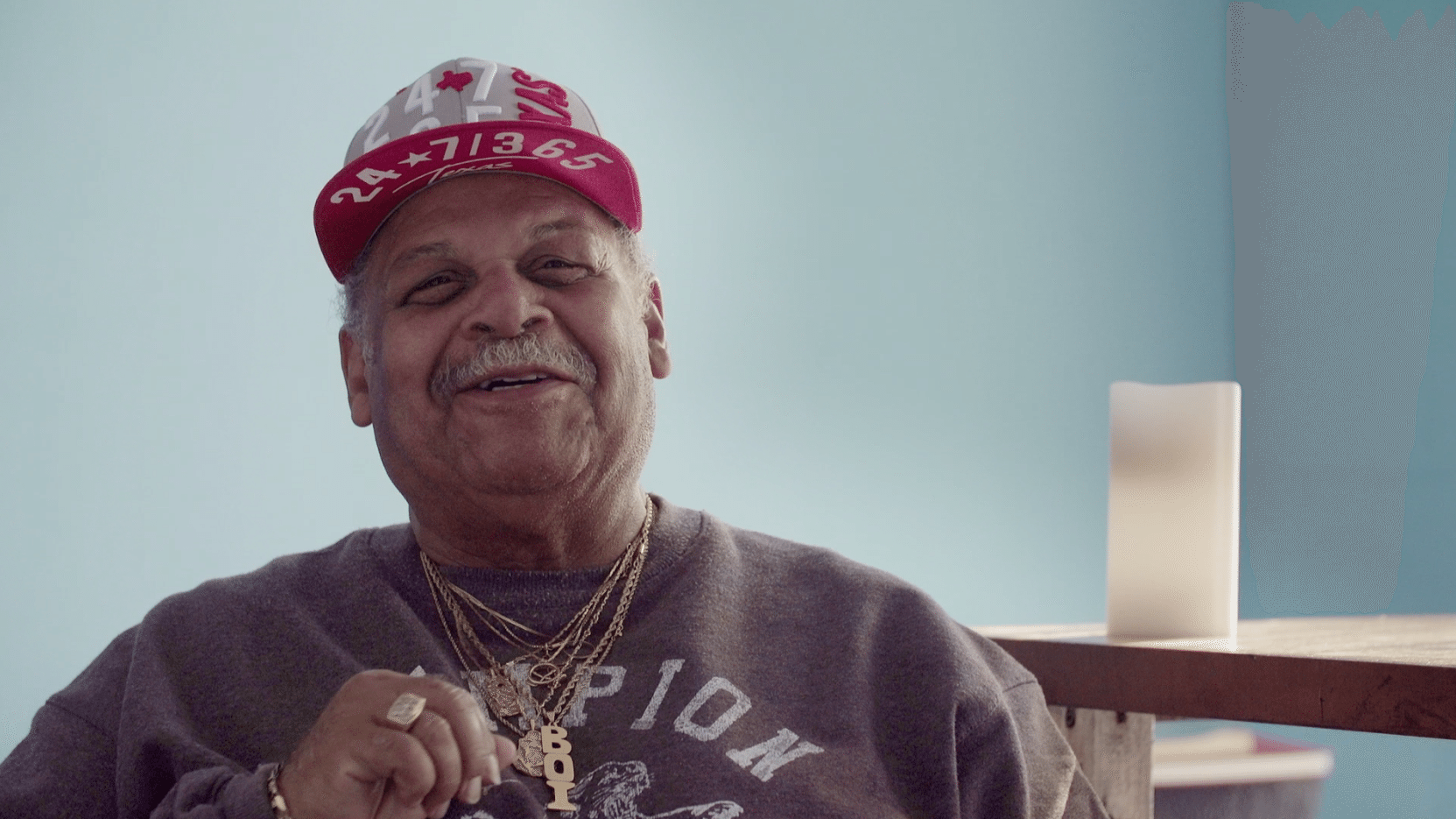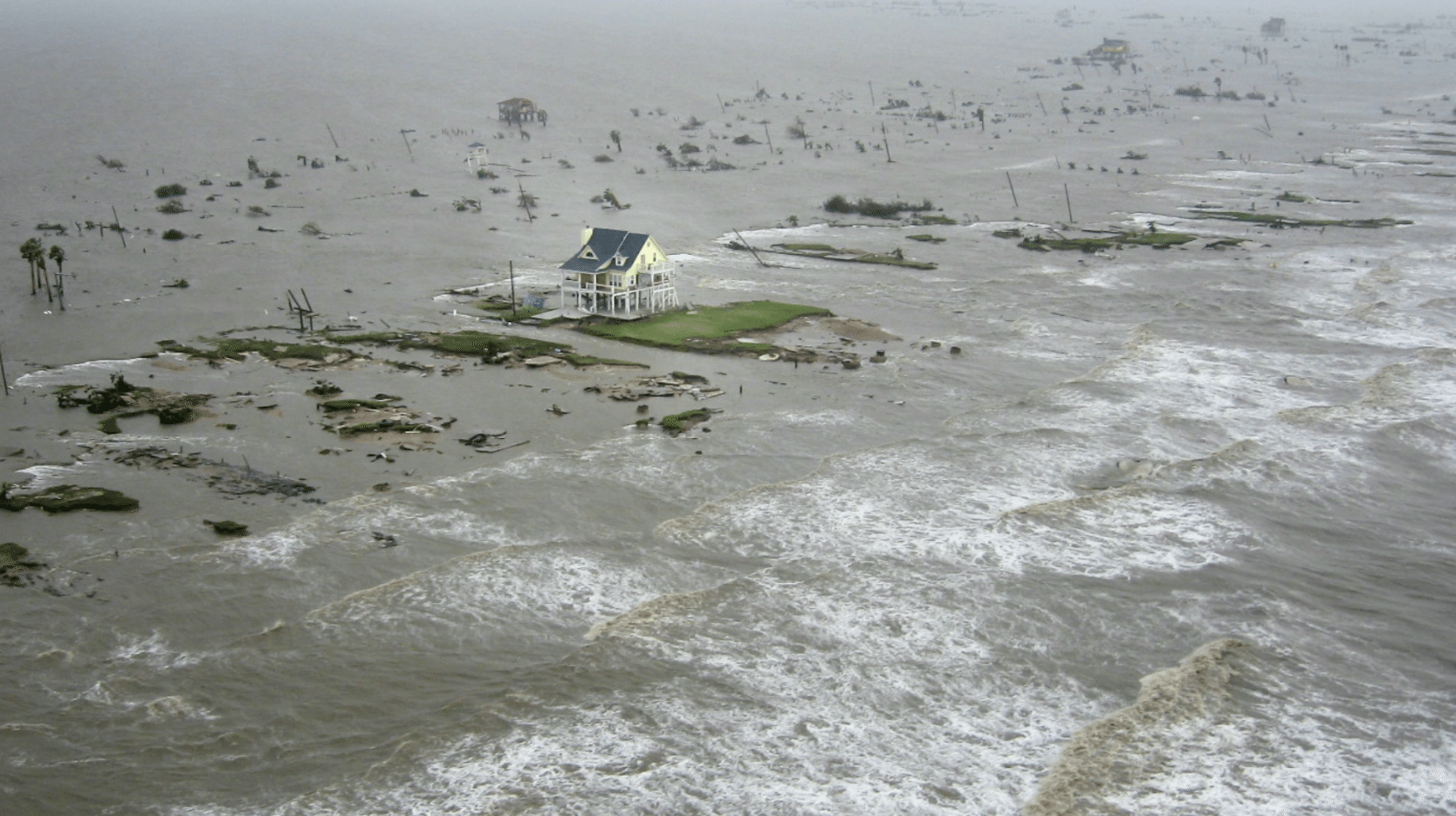When Hurricane Ike struck the Gulf Coast in 2008, it hit Galveston, Texas the hardest. Eight years later, residents are still rebuilding what they lost to the impacts of climate change.

Hurricane Ike was one of the largest and most costly hurricanes in U.S. history. Ike claimed 195 lives across Haiti, Cuba, and the United States, and the property damages are estimated at $29 billion in the United States alone.
But as always, these numbers only tell a piece of the story. Behind them are communities like Galveston, Texas and people like Leon Phillips.
Leon was born on the island of Galveston, and he’s lived there for most of his life (he’s the first to speak in the video above). Leon’s a well-known figure in town — he calls himself a community “actionist.” The first time I spoke to him on the phone, he apologized mid-sentence and put me on hold for about six minutes.
“That was the mayor,” he said when he called me back. “We were chatting.”

Leon Phillips interviewed in Galveston, Texas. Image from “Postcards From Climate Change: Born on the Island” / John Fiege.
Over the course of a month, Leon and I spoke four times about Galveston and the Postcards From Climate Change project. Through our conversations, I got to know Leon a little bit, and two things stuck out to me.
First, he knows his history. Off the top of his head, he recounted for me in detail how black families — including his parents — came to Galveston from across the Gulf in the 1930s and 1940s, and how race and class have shaped the island. Second, he’s also very good at communicating across difference (he’s 68, black, and from the South and I’m 25, white, and from California just to give you one example).
Both of these things make Leon a great person to talk to to understand the impacts of climate change on Gulf communities.
“When Ike hit, everyone that lived on Galveston Island — we became the prime example of what ‘island’ is,” he told me. “There was no grocery store, no electricity, no phone service. There was nothing.”
“When Ike hit, everyone that lived on Galveston Island — we became the prime example of what ‘island’ is. There was no grocery store, no electricity, no phone service. There was nothing.”
Leon Phillips, Postcards From Climate Change
Leon told me about waiting in line for water in the Housing Authority parking lot right after Ike, and about how the woman in front of him — who was one of the wealthier people in town and used to organize charity benefits — leaned on his shoulder and cried.
“Her millions didn’t matter,” he said. “We were in that position together. We were on that island, and we were waiting in line for water and ice. When something like that happens, it doesn’t matter who’s rich and who’s poor.”
“Her millions didn’t matter. We were in that position together. We were on that island, and we were waiting in line for water and ice.”
Leon Phillips, Postcards From Climate Change

Galveston, Texas flooded immediately after Hurricane Ike made landfall in 2008. Photo by Lawrence Skiles.
But Leon also told me that sense of unity was short-lived. Public housing in particular became a hot button issue in the rebuilding of Galveston, with the debate often divided along racial lines.
For close to two years, Leon and other community advocates in Galveston fought against a federal lawsuit that would have prevented the rebuilding of all public housing torn down after Ike. A judge threw out that case in 2014, allowing for rebuilding to commence. Families have begun moving back into public housing in the last few months, marking the end of a nearly eight-year gap between Ike and a return to Galveston for thousands of primarily black residents.
Even though he’s still living with the effects of Ike on a daily basis, Leon spoke to me a lot about the future. I couldn’t help but think that part of this stemmed from the sense that the next Ike could strike at any time.
“There have already been three hurricanes developed in the Gulf or Atlantic this year, and it’s only June,” Leon told me last week. “I’ve lived in Texas my whole life and I’ve never seen that.”
We also talked about what it would take to get more ambitious action on climate change from lawmakers, which was one of Leon’s main hopes in telling the story of Galveston post-Ike.
“I don’t think people are concerned enough,” he said. “We’re in an election year, and I’ve seen more debates than ever in my life. But how many have even mentioned global warming?”
For both of us, the answer was ‘not enough,’ but the stakes aren’t the same. Talking to Leon was a good reminder that those on the frontlines of climate change — like Galveston — have the most to lose if our leaders fail to act.
Ryan Schleeter is an online content producer at Greenpeace USA. His writing has appeared in National Geographic, Grist, GreenBiz, EcoWatch, and more.
